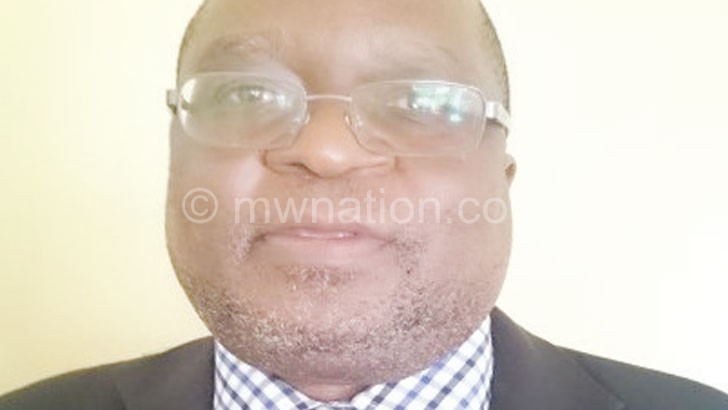‘We want to make household livelihoods sustainable’
For the past months, Comsip Cooperative Union Limited has been implementing a Graduation Model of its members who benefit from governments social cash transfer funds. The graduation is only attained at household level if the household has diversified its income generation capacity and is resilient to modest shocks. ANGELLA PHIRI caught up with Comsip chief executive officer Tenneson Kalizga Gondwe to shed more light on the model.

Q: We understand Comsip is advancing a graduation model, intended to graduate some of its members. Can you explain the thinking behind the graduation model and briefly elaborate on what is graduation in this context?
A: We have three types of graduation. The first one entails that beneficiaries have met a set criteria to exit the programme, let us say beneficiaries of school fees reaching a certain age i.e age 21 and they can stop receiving support. The second follows the MNSSP II [Malawi National Social support Program II] which entails beneficiaries make the grade into sustainable livelihoods. However, this group does not necessarily stop receiving support. The third group is what we term intergenerational graduation that entails investing in early years of education so that children become better off and out of poverty in future.
Graduation is meant to support households to become self-reliant and have self confidence that they can move out of poverty.
Q: Who will graduate, from where and to what level?
A: As you ar e awa r e government is implementing social safety net programs and one of which is the social cash transfer programme. Comsip is working in the 11 districts that the World Bank is supporting namely; Blantyre, Chiradzulu Dedza, Lilongwe, Dowa, Ntchisi, Kasungu, Nkhotakota, Nkhatabay, Rumphi and Karonga. In these districts we are inculcating a culture of savings and investment among social cash transfer beneficiaries. Through the district councils we form savings and investment groups as forums for financial intermediation which has received overwhelming response. The myth that the poor cannot save does no longer holds.
Wi th graduat ion those with potential and willing are targeted through a community endogenous process. The process uses endogenous knowledge in selection of beneficiaries and is designed to rule out community queries that come with exogenous criteria. The community selects its own members to go into graduation process. In every district due to resource limitations we are currently targeting two traditional authorities. And in total about 4 100 beneficiaries have been targeted.
Q: What are the core indicators that would show a member has graduated?
A: In our case these three core indicators are at play; food and nutrition security, income diversification and possession of productive assets. Let me expound on the three.
Food and Nutrition security entail that the household can afford to purchase two bags of fertiliser and 20 kilogramme improved seed and have at least 2-3 meals a day. The diversity in income entails that the household can at least from the income manage to save at least K60 000 as book saving value in the micro-savings account at group or cooperative level while the productive asset indicator entails that the household can convert the asset in times of shock or indeed in times of need equivalent to K100 000.
Q: Recently Comsip launched the distribution of nutrition supplements in the form of blended maize and soy flour and that it intends to transfer productive assets to some of its members. What has prompted these interventions and how are you going to sustain them?
A: It is indeed true that we are in Nutrifeed and asset transfer programmes. All these have been prompted by the situations on the ground as well as the demand from the beneficiaries. As such interventions like Nutrifeed were designed to assist households to cover the nutrition gaps during lean periods. It is however targeting under-five children, pregnant women, lactating mothers and chronically ill members basing on the understanding that during lean period, many households do not have adequate food.
On the other hand, the productive asset support is premised on the thinking that the vulnerable households have the potential to move out of poverty but lack the necessary ingredient to move them out of poverty. That is why we are giving them a starter pack of capital.
Q: Provision of productive assets is really a good intervention, but will the beneficiaries manage them?
A: Sustainability is our key. We have designed capacity building activities to train the beneficiaries in Nutrifeed on how to make their own feed from locally grown crops and other resources. While on asset transfer the sectoral linkages will play a vital role in building capacity in the management of the asset. Recognising the sectoral role of extension workers and the number of client farmers they serve, we have built capacity in community facilitators who will provide backstopping services alongside the extension workers. The advantage of community facilitators is that they are not transferable as the extension workers do and are always available.
Q: What do you want to achieve at the end of this. What is the end goal?
A: Our end goal is to make household livelihoods sustainable and move them out of poverty. In this regard we help government in meeting the Sustainable Development Goals [SDGs]. We are a cooperative movement and our support goes beyond the project support through our cooperative business enterprise model.





